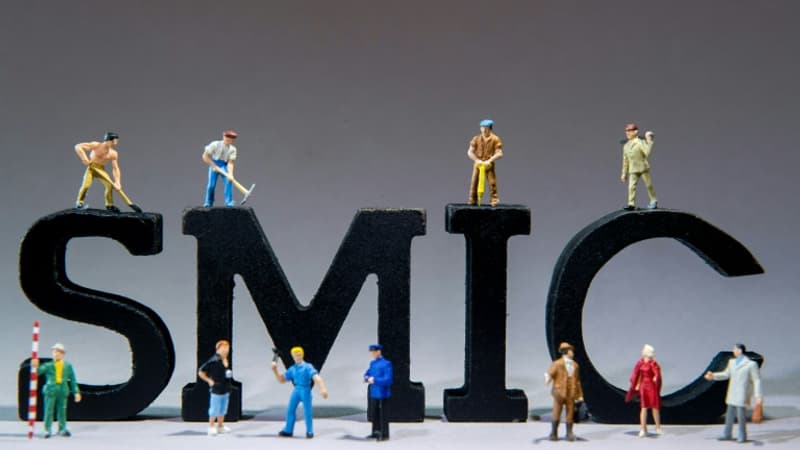New rise in the Smic, the sixth in 20 months and the beginning of the inflationary wave. This May 1, the minimum wage has effectively increased by 2.22% to stand at 11.52 euros gross per hour. As a reminder, in the 3rd quarter of 2021, your gross hourly amount was 10.25 euros. Thus, it increased by an unprecedented 12.4% over the period.
The net monthly minimum wage based on a 35-hour work week now amounts to 1,383 euros when it was still around 1,200 euros in 2019, before the health crisis.
In addition, of the approximately two million employees with a minimum salary, some receive the activity bonus that is added to their salary, or 200 euros more on average. With this, his level of remuneration amounts to 1,580 euros net in this month of May. But is it enough not to suffer from inflation?
Smic increases cover global inflation
From an accounting point of view, the increase in the minimum wage was greater than the increase in prices. Since the minimum wage is indexed to inflation, it increases automatically if it increases by at least 2% with respect to the index observed at the time of the last change.
Since January 1, 2022, the Smic has thus increased by 9% when the price index, for its part, had increased by slightly more than 8% in March compared to January 2022.
But this is the general price index. Some products have increased much more. In particular food, whose inflation reached 17.6% in April in one year, according to Circana. However, it is this expense item that weighs the most in the budget of low-income households. Around 19% for the poorest fifth of the French, according to INSEE, when it is only 14% for the richest.
The calculation of the revaluation takes into account the expenses of the most modest
Therefore, the French with minimum wage are more exposed than others to increases in food prices. However, the revaluation calculation takes this into account in part. It is based on two tracks. “First of all, inflation, more specifically the increase in the consumer price index (CPI) produced by INSEE, explains Michael Orand, head of Dares’ economic analysis mission. In practice, it is the index of prices without tobacco the one that affects the 20% of the poorest households that is used: it should be noted that this changes more rapidly than the price index for all households, because the participation of energy and food in the budget of the low-income households is higher.
Then, the second index that is taken into account is the hourly basic salary of workers and employees. “Dares elaborates it from the survey on the activity and employment conditions of the staff”, specifies Michael Orand.
If the hausse du Smic a été more important than inflation, it is precisely for having account of ce poids more important des dépenses, notamment alimentaires, for the most modest menages, then the hausse des prix n’affecte pas tous les ménages in the same way.
A threshold effect for other low-income households
The minimum wage, therefore, quite effectively protects the purchasing power of people… who are paid at this level. And this is where the difficulty lies for many households that have not seen their salaries increase in the same proportions. About a third of French employees earn between a minimum wage and 2,000 euros a month. However, for the latter, the increase in the average salary did not reach 9%, as is the case with the minimum wage.
On average, in two years, the basic wages of workers and employees (excluding bonuses and overtime) have increased by 6.5%, according to data from the dares. An increase less than the price increase. Only overtime and paid bonuses have allowed them not to lose purchasing power.
In branches, complicated negotiations
Added to this is the difficulty for social agents to raise the minimums for branches. According to the unions surveyed, of the 171 large professional branches with more than 5,000 employees in the country, 86 of them had minimum wages below the minimum wage in April. Therefore, a growing number of employees will automatically find themselves at minimum wage.
Others could see their salary development prospects limited by their outdated branch agreements. In some of them, more than five qualification levels (and even up to 11) are below the minimum wage. If companies can’t pay their employees below the minimum wage, nothing obliges them to raise it if they are paid just above it. A low wage trap against which the head of state called on the Government to fight more.
Source: BFM TV


